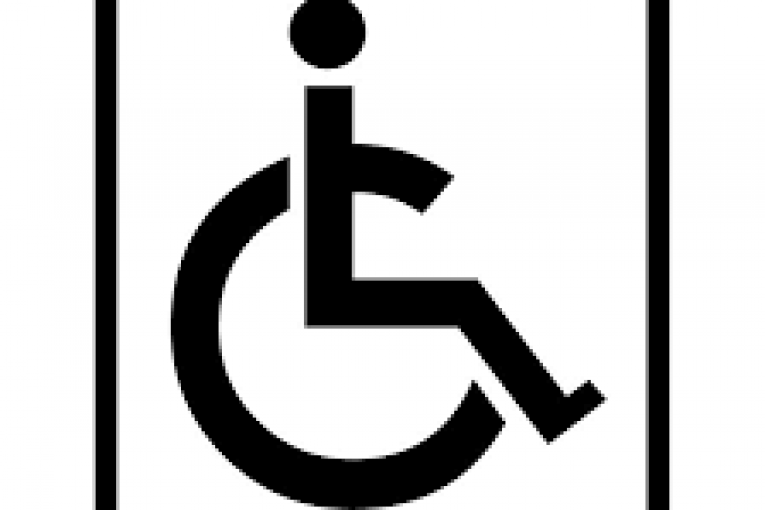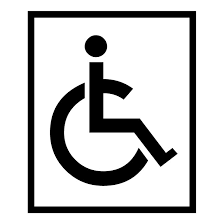

Via VectorPortal

This work is licensed under a Creative Commons Attribution 4.0 International License.
By Rena Abdusalam
SACRAMENTO, CA – Disability Rights California and other progressive organizations said this week they oppose Senate Bill 43, and instead endorse discretionary, community-based treatment and services that expand the rights for people living with mental health disabilities.
In a letter to the Assembly Health Committee, the groups said, “We oppose SB 43. Based on our extensive experience working with clients and communities across the state, we know that expanding the definition of ‘gravely disabled’ to make it easier to involuntarily detain people undermines the very purpose of the LPS Act and fails to address the real needs of Californians living with mental health disabilities, especially those who are unhoused.”
The Lanterman-Petris-Short (LPS) Act provides guidelines for handling involuntary civil commitment of individuals to mental health institutions in the State of California, and “end the inappropriate, indefinite, and involuntary commitment of persons with mental disorders….”
According to SB 43’s author, the bill would “modernize” the meaning of “gravely disabled” within the LPS act to strengthen meeting the needs of individuals living with mental illness.
“However, expanding the definition of gravely disabled to make it easier to involuntarily detain people directly conflicts with the purpose of the LPS ACT and does not address the real needs of Californians living with mental health disabilities, especially those who are unhoused,” said the organizations opposing the measure.
They continued, “As the California State Auditor explained, ‘involuntary holds are but one component of a more comprehensive mental health care system’ in California, and ‘individuals who receive crisis intervention are not always being effectively served by that broader system.’”
Although the State Auditor discovered “the LPS Act’s [current] criteria for involuntary holds and conservatorships are sufficient to meet the intent of the Act[,],” the opponents said the State Auditor also deduced that enlarging criteria for involuntary holds to include standards that are wide-ranging “could widen the use of involuntary holds and pose significant concerns about infringement on individual rights.”
In order to not undermine the LPS Act, the organizations recommended, “Consistent with the State Auditor’s findings, rather than expanding the definition of ‘gravely disabled’ to make it easier to involuntarily institutionalize people, the Legislature should invest in community-defined, evidence-based programs and services that are proven to meet the needs of Californians with serious mental illness.”
“Affordable, accessible housing with voluntary supports addresses the needs of chronically homeless people with disabilities,” added the organizations, noting, “Such housing should be offered on a Housing First basis, which is an evidence-based, client-centered approach that recognizes housing as necessary to make other voluntary life changes, such as seeking treatment or medical care.”
The purpose of Housing First, they said, is to “provide housing to people quickly, with as few obstacles as possible, along with voluntary support services according to their needs.”
“While California is making investments to increase access to affordable, accessible housing through initiatives like Project Homekey and No Place Like Home, the Legislature should do more to shore up California’s ability to provide affordable, accessible housing on the scale that it is needed,” they stated.
The organizations declared the State should “match these housing production investments with investments in programming and workforce” to secure “the availability, integration, and continuity” of programs for people who require them.
Additionally, they expressed the State should “exercise greater oversight over local jurisdiction” to guarantee that unhoused individuals are provided and accommodated in “appropriate affordable, accessible housing with voluntary support.”
Assertive Community Treatment (ACT) is an evidence-based program that uses a multidisciplinary team perspective to supply a broad range of community-based services to people living with extreme mental health disabilities.
“ACT is a highly integrated, team-based service delivery model, not a case management program, and is proven to be effective for people who have not been adequately served by traditional service delivery approaches,” stated the organizations. “ACT is designed to be delivered with fidelity to an evidence-based model.”
Although California counties demand Full Service Partnerships (FSP) Cal. Code of Regulations § 3620 and some have ACT a part of their FSP programs, ACT generally “provides a more engaged level of service than the standard FSP,” according to the organizations’ letter.
“The recent behavioral health needs assessment published by DHCS found that ACT is not yet available with fidelity on the scale necessary to support optimal care for people who could benefit from the level of engagement that it offers,” they noted.
“The multi-disciplinary teams that provide ACT are not a covered benefit under Medi-Cal, despite their established effectiveness in helping people living with serious mental illness remain in the community,” continued the organizations. “Expanding the availability of high-fidelity ACT in California would address community needs more effectively than expanding involuntary treatment.”
“We also oppose SB 43 because it reflects poor public policy,” declared the organizations.
“First, SB 43 will perpetuate health disparities, disproportionately burdening the unhoused and Black, Indigenous, people of color (BIPOC) and immigrant racial minorities,” they said.
Quoting a UCLA study, the groups said unhoused people are disproportionately likely to be susceptible to involuntary holds. Additionally, patients who are unhoused at the time of entry experience extended hospitalizations and are likely to remain unhoused when released.
“In California’s current housing landscape, there is no guarantee that a person who was unhoused at the beginning of an LPS Act commitment will remain stably housed after the conservatorship ends,” they added.
“The UCLA study concluded that ‘reliance on conservatorships as a means to secure both longer-term shelter and mental health treatment is a signal of systemic gaps in California’s safety-net systems of care.’ SB 43 not only reflects these systemic gaps, but threatens to make them worse,” they added.
“SB 43 will also worsen health disparities by disproportionately burdening Black, Indigenous, people of color and immigrant racial minorities,” continued the organizations. “Rates of serious mental illness in California vary considerably by racial and ethnic groups, with American Indian, Alaska Native, and Black Californians experiencing the highest rates of serious mental illness.”
According to their letter, Californians that are unhoused are disproportionately Black or African American, charging a recent Disability Rights California (DRC) investigation in Alameda County “revealed that 55 percent of individuals involuntarily held over ten (10) times in County psychiatric facilities were African American—even though African Americans make up less than 11 percent of the County’s population.”
According to the California Department of Healthcare Access and Information and noted by County Behavioral Health Directors Association (CBHDA), “compared to their White counterparts, Black and Latinx Californians were 57.2 percent and 154.5 percent, respectively, more likely to be placed on a 5150 hold.
“By expanding the criteria for involuntary institutionalization, SB 43 will make this disproportionate impact on communities of color far worse,” the organizations added.
“Instead of expanding tools for involuntary detention that will exacerbate inequality, California must focus its resources on building out voluntary, culturally responsive, and community-based mental health services and affordable, accessible housing options that will fill gaps in the system,” they added.
“Second, SB 43 will traumatize individual patients and undermine public health policy by causing patients to distrust behavioral health systems,” said the organizations, adding,
“Institutionalization is harmful and traumatizing for patients and causes long-term harm to California’s public health policy by leading patients to distrust and disengage from behavioral health systems entirely.”
The SB 43 fact sheet roughly calculates that one-third of the state’s population experiencing homelessness also live with mental illness. However, the fact sheet excludes the specific number of individuals who would be impacted by the bill.
“Fourth, SB 43 will exacerbate bottlenecks in the already-strained mental health system, rather than investing in the infrastructure, workforce, and funding needed to meaningfully expand community-based services,” continued the organizations, noting,
“In a recent study published by the California Health Care Foundation, counties throughout the state pointed to problems with patient ‘throughput’—flow across the system of care—being obstructed by a lack of capacity at one or more different levels, causing ripple effects throughout the system.”
The organizations added the bottlenecks are drastic when a person is put on an involuntary LPS Act hold.
“Many people placed on 5150 holds languish for days in hospital emergency departments while they await referrals to community-based services or placement in acute psychiatric units, if necessary. This places increased stress on emergency departments and does not serve the treatment needs of patients,” they claimed.
“Expanding the definition of ‘gravely disabled’ will only make this problem worse, particularly given existing limitations in infrastructure, staffing, and funding,” the organizations vocalized.
“Finally, we oppose SB 43 because it is unconstitutional on its face and violates the Americans with Disabilities Act (ADA) and related law,” noted the organizations. “The bill conflicts with constitutional due process protections by relying on vague criteria that requires decision-makers to speculate about future conditions.”
For instance, the bill expands the criteria by allowing people with substance and alcohol use disorder to be detained, even though California has no way of involuntarily treating the individuals with these disorders.
As said by the organizations, the bill expands the meaning of ‘gravely disabled’ in a way that is “highly speculative and will lead to detaining people against their will and depriving them their fundamental rights to privacy and liberty without offering voluntary community-based services.”
“SB 43 is also rife with ambiguous, undefined terms that have no commonly understood meaning that can be applied…SB 43 will also cause the unnecessary institutionalization of people with disabilities in violation of the ADA. In addition, the use of hearsay evidence by expert witnesses will infringe upon fundamental rights to due process,” said the groups.
SB 43, opponents added, conflicts with Title II of the Americans with Disabilities Act, which “mandates that people with mental health disabilities have a right to access treatment and services in the most integrated setting appropriate.”
“By expanding the definition of grave disability, SB 43 will result in the unnecessary institutionalization of people with disabilities without regard to whether integrated community services are appropriate, in violation of the ADA and related law,” they added.
Additionally, SB 43, the opponents said, creates a new hearsay exception for “health practitioner statements in medical records discussed by an expert witness during conservatorship proceedings,” which would be inconsistent with prior ruling in People v. Sanchez, which guards against imperfect perception and memory.
“For the above reason, we oppose the creation of a new hearsay exception that would further erode the due process rights afforded to individuals in conservatorship proceedings, without justification,” the bill’s opponents explained.




